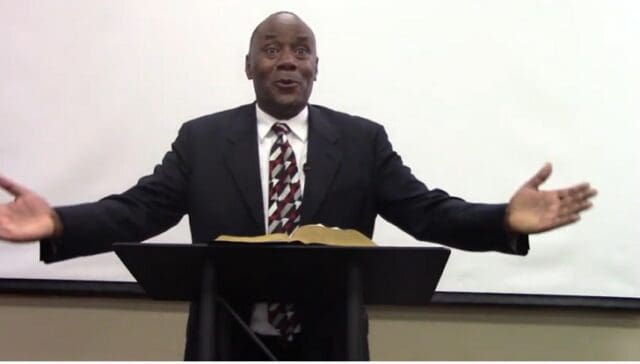
There is a historical principle that “forbids” organized religious institutions from endorsing a specific candidate. Although this should be simple, it is not. The reason why these institutions, not their members, should restrain from this is because faith should not be political. Within the Christian faith, we have institutions: denominations if you will. These denominations are composed of members. There are two categories of members as far as the Bible is concerned. Those whom Jesus Christ called the “wheat” and those he called the “tares.”
Therefore, when we are talking about Christian Institutions, we are speaking of registered and organized entities within a legal framework. It is these institutions that should not endorse a candidate. For example, I am historically a member of the African Inland Church. However, I also serve under Victory Churches, and other Christian Institutions. These are registered legal entities and their institutional leadership should not proclaim, for example, that, “We Africa Inland Church and our 6 million members have endorsed James Mukora Mahuti.”
However, given that members of these institutions—both the wheat and the tares— are citizens, they individually have civic obligations to the government (see Romans 13). Jesus Christ argued that because the Apostle Peter was a citizen of Rome under Caesar (Augustus Octavian Caesar the nephew to Julius Caesar) Peter was obligated to give to Caesar what is Caesars, i.e., taxes. Based upon this statement then, Peter could argue that given that Caesar represented the government, he could have expectations that services be rendered to him under Caesar’s government. It is on this argument that Americans, as citizens of a democratic republic, stand. They call it taxation based upon representation. In other words, citizens should not be taxed unless they can expect services from the government, which imposes these taxes.
Therefore, members of the Church have a right within Kenya’s constitution to expect the government to serve them. This service is not devoid of their personal status. Muslims have certain doctrines they adhere to and these cannot be separated from their civic duty. In fact, Islamic countries do not separate “Church and State.” In the real sense, neither can Christians separate Church and State. Our constitution establishes faith as an innate Divine instituted principle for all Kenyans. Our Constitution’s Preamble states, “Kenyan people are God-fearing people.”
Therefore, it is important that citizens demand to know what philosophy guides those who govern them. It is within this sacred ideal that we must ask of those seeking to become President of Kenya whether they adhere to the principles that guide us individually. As a believer in the Lord Jesus Christ and a Pauline theologian trained in philosophy, theology, and behavioral psychology, I must demand that the person I vote for align with my whole being: naturally, intellectually, and especially spiritually.
To this end, Kenya is said to have a religious composition of 70% Christians, 20% Muslims, 1% African Traditional Religions (ATRs), and 4% other faiths (Hindus, Buddhists, Jains, among those of other faiths). Those within each faith category must seek to establish that their interests within the Preamble are represented. Our Constitution’s Preamble indicates that faith in God is a part of our nation’s DNA.
It is important to note that Aden Duale has endorsed William Ruto. I note Duale because he has historically demonstrated his adherence to his Muslim faith and used his political position to advance Islam in Kenya. It is Duale who influenced President Uhuru Kenyatta to worship at a mosque in Kenya: something Christians should not do and which has never been done by any other president. However, I respect Aden Duale for standing up for his faith.
Duale shows us that we who believe in Jesus Christ must also adhere to our faith, even within political decisions. The question is, who should the Kenyan christian vote for in the coming election? The test should not be whether a person claims to believe in Jesus Christ: Even demons claim this. However, the question should be, has the individual demonstrated historically that he is a believer and follower of Yesu Kristo? Can you as a believer standing with that person be comfortable calling him a brother in Christ? Can you trust that person to lead the country within the political philosophy espoused by St. Paul?
As a writer I should not be endorsing anyone. However, I have historically written about the qualities of a Christian leader so that there is no question as to whom of the two candidates fits the model. For a definition of who a Christian is, see video below:
By Teddy Njoroge Kamau (PhD)
HTBluff Associates
Diaspora Messenger Senior Columnis
Who Would Christ Vote for in Kenya’s Next Election? I Think I Know!
https://diasporamessenger.com/2013/05/if-biblical-for-pastors-to-eat-from-the-offering-its-biblical-for-caesar-to-eat-from-the-taxes/
The Christian’s Choice For 2022 Elections: William Ruto or Raila Odinga?







